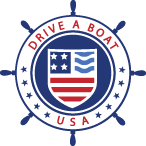New York State has enacted a law in 2020 that will require all operators of motorized boats or personal watercrafts (PWCs) to obtain a Safe Boating Certificate. The law will be phased in over a period of six years, with full implementation by January 1, 2025.
This new regulation is designed to improve safety on New York waterways. Currently, anyone born on or after January 1, 1988 is required to obtain the certificate.
To obtain a New York Safe Boating Certificate, you must be at least 10 years of age. Children under the age of 10 are prohibited from operating boats in New York unless they are accompanied on board by an adult who is 18 years or older who possesses a valid Boating Safety Certificate.
Any person operating a personal watercraft (PWC) in New York must be at least 14 years of age and must have taken the Boating Safety Course. Otherwise, they must be supervised by a person who is at least 18 years of age and has a Boating Safety Certificate.
Age groups listed below will need to obtain their Boating Safety Certificates by the listed dates:
- 2022: Those born on or after January 1, 1988
- 2023: Those born on or after January 1, 1983
- 2024: Those born on or after January 1, 1978
- 2025: All motorized boat operators, regardless of age
For more information, see Do You Need a Boating License in New York State?
US Coast Guard-approved wearable life jackets are required on board every vessel, including canoes, kayaks, and row boats operated in New York State. All life jackets must be easily accessible.
Boats over 16 feet in length
Wearable life jackets (Type I, II, III or V) are required for each person on board all boats more than 16 ft in length. A throwable device must also be carried on board.
Canoes and kayaks
All passengers in a canoe or kayak must have a life jacket (Type I, II, III, or V) on board.
Personal Watercraft (PWC)
There is a mandatory requirement for all PWC occupants to wear a life jacket (Type I, II, III, or V).
For more information, see New York Life Jacket Laws and Requirements.
Owning a boat in New York comes with several responsibilities. One of those is making sure the vessel is registered with the state Department of Motor Vehicles. This requirement applies to all motorized recreational boats, including personal watercraft (PWCs), canoes, and rowboats equipped with electric motors. Federally documented boats also must be registered and display validation stickers.
As per New York law, all boat operators must have the registration certificate on board and available for inspection at all times. Registration is valid for a period of 3 years from the date of registration. Failure to do so may result in penalties.
Registration is not required for the following vessels:
- US or foreign-registered commercial boats
- A boat that is legally registered in another state (can only remain in New York up to 90 consecutive days)
- Lifeboats on a ship (not including dinghies and tenders)
- Competition race boats
- Non-motorized boats (human or wind-powered)
For more information, see How to Register a Boat in New York State
Boating while impaired from alcohol, drugs, or a combination of the two is illegal in the state of New York. No person is permitted by law to operate a vessel or towed device (water skis, wakeboard, etc.) while under the influence of drugs or alcohol.
Boating Under the Influence (BUI) criteria in New York:
- Blood Alcohol Concentration (BAC) level of 0.08 or higher
- Under 21 years of age with a Blood Alcohol Concentration (BAC) level between 0.02% – 0.07%
Furthermore, boaters under 21 years of age who are caught drinking alcohol and operating a boat will have their boat operating privileges suspended or revoked under New York’s zero tolerance law.
For more information, see Boating Under the Influence Laws in New York State.
As well as the laws and regulations regarding motorized vessels, Personal Watercraft (PWCs) are also subject to these laws and regulations in New York State:
- PWCs cannot be operated by anyone under 14 years of age
- A US Coast Guard-approved life jacket must be worn at all times by all PWC operators, passengers and persons being towed. Inflatable PFDs are not permitted.
- An engine shut-off lanyard must be attached to the operator’s person, life jacket, or clothing for PWCs equipped with an ignition safety switch
- Even if the vessel is equipped with navigation lights, PWCs may only be operated during daylight hours (between sunrise and sunset). When visibility is restricted, operation is also not permitted.
- PWC operators must possess a valid New York State-approved Safe Boating Certificate
- It is forbidden to operate a PWC within 500 ft of designated swimming areas
For more information, see New York State Personal Watercraft (PWC) Laws and Regulations.

